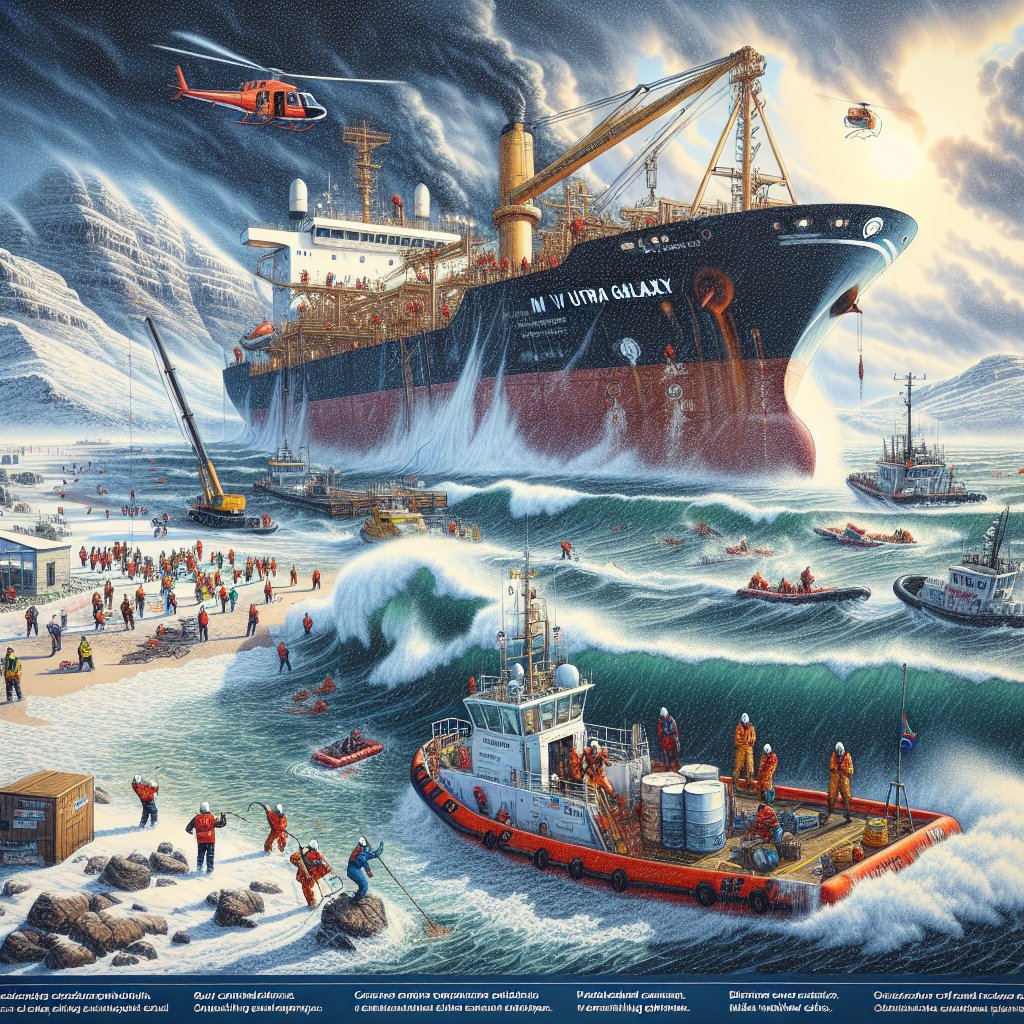Image created by AI
Salvage Operation Battling Cape Storms to Avert West Coast Oil Disaster
The West Coast of South Africa has been witness to an intensive salvage operation as teams work diligently to prevent an ecological catastrophe following the wreck of the MV Ultra Galaxy. The Panama-flagged ship, which found itself at the mercy of relentless storms, has left salvage master Rudolph Punt of Smit Salvage and his team facing an arduous task as they navigate precarious conditions to contain and remove the oil spillage.
The disaster began to unfold when the MV Ultra Galaxy, laden with an estimated 500 tonnes of oil, split near the coastal towns of Papendorp, Doring Bay, and Lutzville. With the vessel cracking into pieces, heavy oils began polluting the surrounding marine environment, necessitating swift action.
The process involves rigorous assessments of safety and stability before salvage crews, often airlifted by helicopter, can board the tilting ship. These teams have taken to drilling into tanks to identify remaining oil quantities, a critical initial step in forestalling further environmental damage. The subsequent offloading of the oil onto a platform supply vessel (PSV) is conducted during the brief windows of calm weather amidst the persistent winter gales.
The magnitude of the disaster began to take shape following repeated storm batterings, the first striking on the 8th of July 2024, leading to the successful rescue of the eighteen Filipino crew members. Prior to the ship's disintegration, efforts were made to remove drums of lube oil and marine gas oil, but to the dismay of the marine conservationists, all the fertiliser on board dissolved into the ocean.
Moreover, the strong winds and heavy rainfall in the Cape region have been disrupting the salvage work continuously. The joint operation spearheaded by the South African Maritime Safety Authority and Smit Salvage revolves around the careful extraction of the hazardous oils. The urgency of their mission is underscored by the need to stabilize and eventually remove the wreckage from the beach.
While the tankers' current state presents a complex puzzle, the salvage teams, working relentlessly night and day, are making strides. Initial assessments by Richard Robertson, Smit Salvage’s general manager for South Africa, have revealed the extent of oil leakage and the daunting task ahead.
Community involvement has played a pivotal role in the aftermath of the spill. Individuals like Peter Swartz, a local fisherman aligned with the SpillTech clean-up crew, have embodied the communal effort to protect the marine life and pristine coastline they depend on. With over 200 locals mobilized, the clean-up has advanced significantly, capturing about 200 tonnes of waste, including tar balls, contaminated sand, and vessel debris.
The teams face an unpredictable adversary in the Cape’s weather, with a mere 5% window of workability this time of year. Salvage operations are further challenged by the need to heat and circulate the oil before transferring it to the PSV, a process that can take up to 48 hours per cycle.
Despite the herculean efforts and complex logistics, the resolve of the salvage operation remains unshaken. In this race against time, they must contend with the forces of nature while the world watches, hoping for best-case scenarios over the worst.










